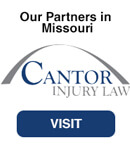Types of Workers' Compensation Claim Petitions in Philadelphia
Workers’ compensation is not what injured workers would call “a user-friendly system.” Its rules are technical and complex; its procedures and all of its various petitions are confusing. It is especially difficult for people who are injured and preoccupied with just holding their lives together until they can get help to navigate this complex and convoluted system. We know how difficult the system is because we have been helping injured workers for more than two decades.
Attorneys Jeffrey S. Gross and Patrick W. Kenny, along with our experienced associates have a comprehensive knowledge and understanding of the types of worker’s compensation claims petitions in Philadelphia.

Experienced Philadelphia Claim Petition Lawyers
Under the law, an Employer/Insurer of an injured worker only has 21 days to accept or deny the claim following being placed on notice of a work-related injury. This decision will come either in the form of a Notice of Compensation Payable or a Notice of Compensation Denial. In either case, it is likely that the injured worker will be required to undergo an “independent” medical examination (IME) with a doctor of their employer’s choosing.
If an employer has denied worker’s compensation to an injured worker, that injured employee is required to file a claim petition with the Bureau of workers’ compensation in Harrisburg, Pennsylvania, in order to obtain benefits. Because it can take a long time before the process is complete, it is important to file a claim petition as soon as possible.
If your claim has been denied or you are not receiving workers’ compensation benefits and you think that you deserve benefits, please contact us immediately to review your claim and begin the process of securing benefits for you. There are many different types of claim petitions for workers’ compensation in Philadelphia, South Philly, and Bustleton. Let us help you find one that is right for you.
Petitions To Modify, Suspend Or Terminate
Philadelphia employers and insurance companies have three primary types of workers’ comp claim petitions at their disposal. A termination petition is filed when your employer or their insurer believes that you have fully recovered from your work-related injuries and that you can return to work without restrictions. This petition requires medical evidence supporting that position and if successful, will cause your benefits to be stopped.
The second type, a Suspension Petition, is used to stop injured workers’ compensation wage loss benefits only. Medical benefits continue in the event of a suspension of benefits. For example, if you have returned to work in a light-duty job but are making the same amount of money as you were at the time of the work-related accident, your employer/insurer will file a suspension petition. If you have returned to work as a result of a request by your employer, but cannot perform the requirements of the job, contact us immediately.
The Employer is required to have you sign a form called a Supplemental Agreement or file a Notice of Suspension at the time you return to work. It is important not to sign anything unless and until you speak to an attorney who can explain your rights to you.
If you have received a Notification of Suspension form or a Supplemental Agreement to sign, let us know so that we may protect your rights under the workers’ compensation act. We can challenge an improper notification of suspension as long as it is within 21 days of its filing with the Bureau of workers’ compensation.
A modification petition is the third type of petition that Employers generally file and is done when you have either returned to work in some earning capacity, but are earning less than what you had before, OR if your employer has had you undergo a vocational interview, has performed a labor market survey and alleges that there is work generally available within your medical restrictions in your geographical area. If successful, wage loss benefits will shift from being based on your previous average weekly wage to being based on the difference between your current and previous wages. Your benefits may also be stopped completely.
What Are Permanent Restrictions?
A permanent restriction is issued by a doctor when they believe that the injury suffered will never fully heal, which limits the employee from returning to full work capacity. When injured on the job, the treating physician will issue work restrictions. These restrictions often keep you out of work temporarily until you heal. Sometimes, the restrictions permit you to return to work right away but with limited duties.
If the doctor treating you places a permanent restriction on your ability to work, it means that you have reached maximum medical improvement (MMI). The Pennsylvania Department of Labor defines MMI as a condition that is unlikely to improve, no matter the extent of additional treatment you might undergo.
You will likely be sent by your employer or their workers’ compensation insurance company for an independent medical review after receiving permanent restrictions. This is especially true if the restrictions were issued by your personal doctor and not a doctor assigned to the case by your employer or the insurance company.
Philadelphia Workers’ Compensation Frequently Asked Questions
The team from Gross & Kenny, LLP, understands that you have questions about how the workers’ compensation program operates in Philadelphia and elsewhere in Pennsylvania including South Philly and Bustleton. Below, you will find some of the most frequently asked questions regarding workers’ compensation in the Commonwealth of Pennsylvania.
What is a work injury?
A work injury is any injury or illness caused by the job worked by the plaintiff, according to Section 301(c)(1) of the Pennsylvania Workers’ Compensation Act, 77 P.S. §411(1). The text of the act does not specifically list injuries or illnesses that fall into this category. It only specifies that the injury or illness must have been caused by the employment of the plaintiff.
Do I have to notify my employer of my injury or illness caused by employment?
Yes, you are required to notify your employer of an injury or illness caused by employment, according to Section 311 of the Workers’ Compensation Act. notification must be given within 21 days of the injury occurring or no more than 120 days after suffering the injury.
When does my employer have to begin paying me benefits?
The Workers’ Compensation Act requires employers to start paying benefits within 21 days of being notified of an employee’s injury or illness on the job. The employer must also deny the claim within the same timeframe.
How long will I receive workers’ compensation benefits?
There is no time limit set forth by the Workers’ Compensation Act in Pennsylvania for how long you can receive benefits. Some employees will receive benefits until they return to work. Others will receive benefits for a set period based on the limits set forth by their employer.
Learn More About Types of Workers' Compensation Claim Petitions in Philadelphia
Reach out to our team to learn more about the different types of workers’ compensation claim petitions in Philadelphia and which one may be right for your situation.



